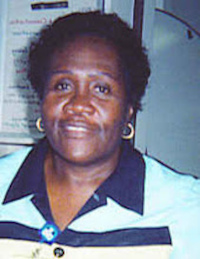
First of all, you don’t really “find” your author voice.
You develop it.
And developing your unique voice in writing (your author voice) involves self-discovery, practice, and refinement.
Begin by reading widely and critically.
Explore various genres and authors to understand different voices and styles.
Analyze what you like and dislike in other authors’ work, noting specific techniques or styles that appeal to you.
Next, write regularly.
Daily practice builds fluency and confidence.
Experiment with different genres, perspectives, and styles, including mimicking admired authors as an exercise.
Reflect on your personal experiences and opinions to bring authenticity and uniqueness to your writing.
Keep a journal.
Keeping a journal to explore your thoughts and feelings without audience pressure can help uncover your natural voice.
Understand your audience.
Understand your audience and purpose, as this shapes your tone and style.
Identifying your audience and clarifying your purpose helps refine your voice.
Offer original insights and express your personal opinions in your work to add a unique perspective.
Study the writing process.
Study books on writing techniques to improve your skills, and join writing groups for feedback and discussion.
Pay attention to language and style, including word choice, sentence structure, and pacing, to enhance the natural feel of your writing.
Revise and edit your work to keep refining your voice.
Read your work aloud so you can hear and adjust the flow.
Seek feedback from critique groups and beta readers to gain valuable insights into how your voice comes across.
Be patient and persistent.
Developing a unique voice takes time.
Trust the process and stay true to yourself, avoiding the urge to force a voice that doesn’t feel natural.
By following these steps, you can gradually cultivate an author voice that is distinctly your own, reflecting your individuality and enhancing the impact of your writing.
Here are some writers known for their unique voices and what makes their voices unique.
You might wish to study their work to get a better feel for how they created such strong author voices.
#1. Ernest Hemingway
Unique Voice: Sparse, economical prose.
What Makes It Unique: Hemingway’s style is characterized by short, declarative sentences and an emphasis on dialogue.
His writing is straightforward and unadorned, often referred to as the “iceberg theory” where the underlying themes are implied rather than explicitly stated.
Some of His Books to Read and Study:
#2. Toni Morrison
Unique Voice: Lyrical and rich prose.
What Makes It Unique: Morrison’s writing is known for its poetic quality and depth.
She blends historical and cultural themes with a deep emotional and psychological insight, often focusing on African American experiences and identities.
Some of Her Books to Read and Study:
#3. Haruki Murakami
Unique Voice: Surreal and whimsical with a blend of the mundane.
What Makes It Unique: Murakami’s voice combines magical realism with everyday life, creating a dreamlike atmosphere.
His narratives often explore themes of loneliness, existentialism, and the blurred lines between reality and fantasy.
Some of His Books to Read and Study:
What I Talk about When I Talk about Running: A Memoir
#4. Margaret Atwood
Unique Voice: Sharp, witty, and often dystopian.
What Makes It Unique: Atwood’s writing is known for its incisive social and political commentary.
She uses a clear, direct style with a touch of irony and dark humor, often exploring themes of power, gender, and identity.
Some of Her Books to Read and Study:
The Testaments (Sequel to The Handmaid’s Tale)
#5. David Foster Wallace
Unique Voice: Dense, intricate, and highly self-aware.
What Makes It Unique: Wallace’s writing is characterized by its complexity and depth, often featuring long, digressive sentences, footnotes, and a high level of detail.
His work reflects a keen intellect and a deep engagement with contemporary culture and philosophy.
Some of His Books to Read and Study:
String Theory: David Foster Wallace on Tennis
Consider the Lobster (and other Essays)
#6. Zadie Smith
Unique Voice: Vibrant, multicultural, and character-driven.
What Makes It Unique: Smith’s voice is energetic and vivid, often weaving multiple perspectives and voices into her narratives.
Her writing reflects a deep understanding of multiculturalism, identity, and the complexities of modern life.
Some of Her Books to Read and Study:
The Wife of Willesden
#7. Cormac McCarthy
Unique Voice: Stark, poetic, and often bleak.
What Makes It Unique: McCarthy’s writing is known for its minimalist punctuation, lack of quotation marks, and a style that is both lyrical and unflinching.
His prose often delves into dark, existential themes, with a focus on the American frontier and the human condition.
Some of His Books to Read and Study:
#8. Gabriel García Márquez
Unique Voice: Magical realism and lush, descriptive prose.
What Makes It Unique: García Márquez’s writing blends the fantastical with the ordinary, creating a rich, immersive world.
His stories often feature elaborate, intricate narratives that explore themes of love, solitude, and the passage of time.
Some of His Books to Read and Study:
Until August
These writers stand out not only for their storytelling abilities but also for the distinctiveness of their voices, which have made significant impacts on literature and influenced countless other writers.
Now, read this article about author voice, character voice, and narrator’s voice.
But, before you do, if you haven’t subscribed to The Morning Nudge, be sure to do that now, so you get our Law of Attraction Checklist for Writers and free access to our Private Resource Library for Writers, as well as a short email every weekday morning to help you manifest your writing dreams!




